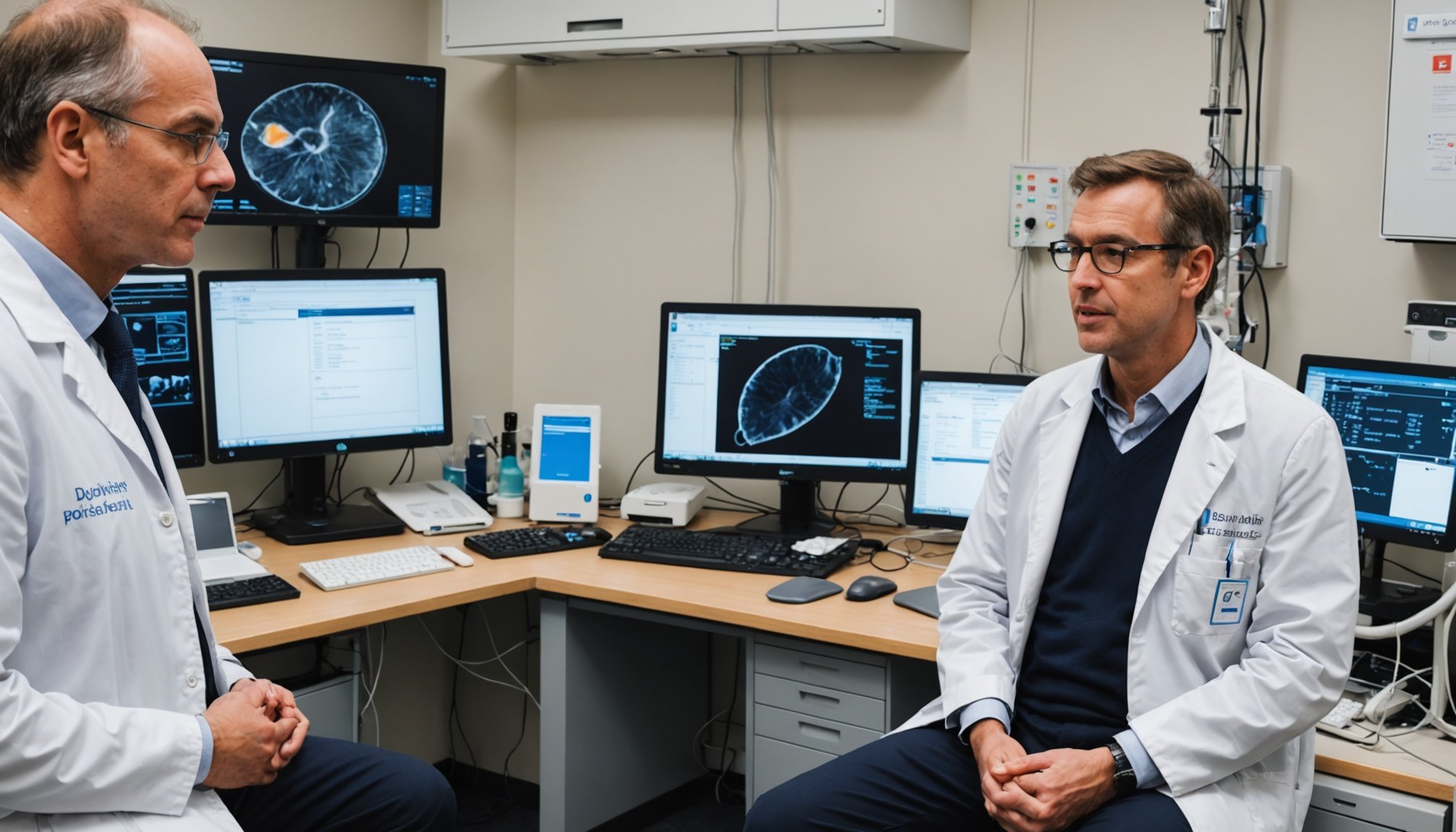Overview of Innovative Techniques in Peritoneal Dialysis
Emerging innovative dialysis methods in the field of nephrology are reshaping how peritoneal dialysis is approached. These peritoneal dialysis techniques are vital for improving patient outcomes and enhancing quality of life. Recent advancements include wearable dialysis devices, which offer the convenience of at-home treatments while allowing greater mobility. Automatic peritoneal dialysis (APD), for instance, is gaining traction due to its ability to perform exchanges overnight, thus reducing daytime interruptions for patients.
Several nephrology advancements are also being integrated into clinical practice, ensuring that patients benefit from the latest in medical technology. For example, improvements in dialysis solutions, designed to reduce glucose exposure, are showing promise in mitigating long-term complications. Additionally, the innovation of remote monitoring systems allows healthcare providers to track patients’ progress in real-time, offering a proactive approach to managing kidney care.
Also to see : Enhancing Prostate Cancer Patient Follow-Up: The Role of Telemedicine for UK Urologists
Adopting these advanced techniques is crucial not only for extending patient’s lifespans but also for enhancing their day-to-day wellness. By embracing cutting-edge peritoneal dialysis techniques, healthcare professionals can tailor treatments more effectively, ultimately fostering a more personalized and adaptive care regimen. As the field evolves, so too does the potential for setting new benchmarks in patient care.
Profiles of Leading UK Nephrologists
Highlighting nephrology leaders, we delve into the respective fields they have significantly impacted, offering a glimpse into their remarkable contributions and expertise.
In the same genre : Exploring the Cutting-Edge Innovations in Robotic Surgery for Gynecological Procedures: A Guide for UK Surgeons
Dr. [Name]: Contributions to Peritoneal Dialysis
Dr. [Name] stands out among UK nephrologists for their pivotal work in peritoneal dialysis. Their rigorous research has led to enhanced treatment protocols that improve patient outcomes. Dr. [Name]’s methods have become a benchmark across many healthcare institutions, increasing accessibility and efficiency in treating renal conditions. Furthermore, their dedication to innovation has consistently driven forward-thinking projects aimed at the advancement of dialysis therapies.
Dr. [Name]: Focus on Patient-Centered Care
Another key figure among nephrology leaders is Dr. [Name], renowned for their commitment to patient-centered care. They have pioneered approaches that integrate patient preferences into management plans, ensuring that individualised care becomes standard practice. This approach not only heightens patient satisfaction but also contributes to better overall treatment adherence and outcomes.
Dr. [Name]: Research and Innovations in Dialysis
Focusing on the forefront of dialysis innovation, Dr. [Name] leads groundbreaking research initiatives. Their work explores novel technologies and methodologies in the domain, particularly concerning peritoneal dialysis. By focusing on both notable achievements and ongoing research, Dr. [Name] is dedicated to transforming the landscape of nephrological practices and improving patient life.
Case Studies and Clinical Outcomes
Delving into the realm of nephrology, recent case studies have showcased significant breakthroughs in treatment methods. Understandably, advancements in peritoneal dialysis have been pivotal. These innovative techniques, detailed in numerous studies, highlight the profound shifts in clinical outcomes.
One remarkable analysis emphasized the benefits of new dialysis approaches. By incorporating cutting-edge technology, healthcare providers have reported substantially improved patient experiences. This is particularly evident in the reduction of procedure-related complications and enhanced recovery times. As these new practices become more widespread, the focus remains on the balance between efficiency and patient safety.
Equally important is the feedback from patients themselves. Testimonials from those undergoing these modern treatments underscore the tangible enhancements in their quality of life. Individuals have remarked on the decreased discomfort and the sense of empowerment through being more actively involved in their treatment choices. These insights offer a human perspective on the otherwise data-driven clinical outcomes.
Together, these elements present a comprehensive overview of the emerging landscape in nephrology, as clinical practice continually evolves. Such advances bridge the gap between scientific research and direct patient care, promising a brighter future for those requiring renal therapies.
Recent Research Findings
Recent advancements in nephrology research have illuminated new pathways for improving dialysis studies. The spotlight on innovations in nephrology showcases promising strides in treatment methodologies.
Recent Trials and Their Implications
Recent trials in nephrology have underscored critical developments in dialysis, particularly focusing on peritoneal dialysis. These trials reveal innovative techniques aiming to enhance patient outcomes. A notable trial involved assessing the efficiency of novel dialysis membranes, which demonstrated significant improvements in the removal of toxins. Such findings suggest a potential shift in standard practices for dialysis, moving towards more personalised treatments.
Key Findings in Peritoneal Dialysis Research
In the realm of peritoneal dialysis, key discoveries highlight the importance of optimising treatment protocols. Trials exploring varying dialysis solutions have reported improved patient comfort without compromising efficacy. These key findings in peritoneal dialysis research emphasize the adaptability of treatments to individual patient needs, paving the way for tailored therapeutic approaches.
Future Directions in Dialysis Research
The future of dialysis research is poised towards integrating cutting-edge technologies. Emerging priorities include harnessing artificial intelligence to predict dialysis outcomes and tailoring personalised treatment regimens. Developments such as wearable dialysis devices are anticipated to enhance patient autonomy, offering a glimpse into the evolving landscape of nephrology.
Practical Insights and Best Practices for Healthcare Professionals
In the ever-evolving field of nephrology, healthcare professionals are continually seeking ways to improve patient outcomes through strategic and evidence-based practices. Implementing innovative techniques can be transformative in the realm of peritoneal dialysis best practices. These strategies focus on enhancing the quality of patient care and ensuring compliance with established nephrology protocols.
Key considerations involve not only adhering to established standards but also infusing patient care strategies with creative solutions tailored to individual needs. Customizing treatment plans based on comprehensive assessments of patient conditions encourages proactive management of potential complications, thereby optimizing patient outcomes.
To remain at the forefront of effective nephrology care, ongoing education and training are paramount. Regular updates in nephrology knowledge and proficiency in handling advanced patient care strategies are vital. The integration of continuous learning opportunities ensures healthcare providers remain adept in the latest dialysis best practices, driving significant improvements in patient care.
These recommendations highlight the importance of staying informed about nephrology protocols and incorporating innovative methodologies. Healthcare professionals are better equipped to deliver outstanding nephrology care by understanding and applying these best practices, ultimately enhancing their practices and improving patient experiences.
Patient Education and Engagement
A crucial component of successful treatment, particularly in managing chronic conditions like dialysis, is ensuring patients receive appropriate education and actively engage in their healthcare journey.
Resources for Patients on Peritoneal Dialysis
Understanding and accessing the right resources can significantly enhance a patient’s experience with peritoneal dialysis. Useful resources may include educational videos, interactive workshops, and accessible written materials explaining the procedure. Healthcare providers should direct patients to online platforms offering reliable dialysis information to complement face-to-face consultations. Tools such as mobile applications can facilitate daily monitoring, fostering self-management.
Strategies for Effective Patient Communication
Effective communication is the cornerstone of engagement in healthcare. Techniques like active listening, providing clear and concise information, and using visual aids can make complex medical terms more understandable. It’s beneficial to tailor these strategies to each patient’s needs, ensuring they fully grasp their treatment plans.
Encouraging Patient Involvement in Care Decisions
Patient involvement in care decisions leads to higher satisfaction and better outcomes. Educating patients about their options empowers them, allowing for informed decisions about their treatment. Encouraging questions during consultations, and fostering an environment of collaboration, ensures patients feel engaged and respected in their healthcare journey.
By applying these principles, healthcare professionals can significantly improve patient experiences and outcomes.











